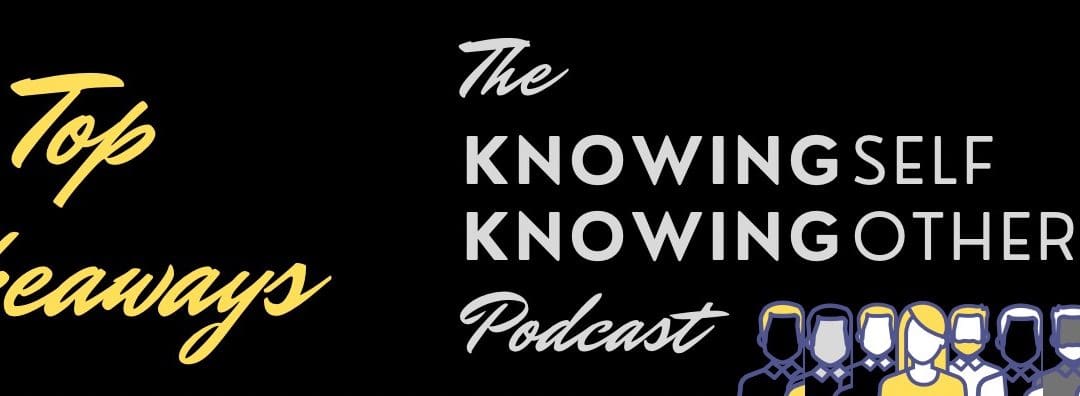I really enjoyed my discussion with Joanna Rawbone about self aware leadership and what that means for introverts. Here are my Top Takeaways from our discussion:
Extraversion bias: we are surrounded by an unspoken understanding that those out at the front shouting loudest are better than those sitting at the back quietly. The extraversion bias is real and embedded in our social and professional world – we wonder what’s wrong with children who like to read quietly on their own from time to time and we ask what’s the problem with the employee who doesn’t speak in meetings. If organisations are serious about the Equality, Diversity and Inclusion agenda, they need to consider neurodiversity in all its forms.

The available introvert: When we think about the definition of self awareness through the lens of introversion, we should consider that the ‘availability’ of introverts to both others and themselves, is different based on whether their batteries are full or empty. Self awareness is about reflection, exploration, feedback and ‘seeing as much of oneself as is available’.
Situational humility: It takes self awareness and humility to say “I don’t know; I’ve never experienced this before”. In receiving input, advice and feedback on the situation, we need to consider whether we’re able to stay present, accept it and work with it. We all have a learning process to go through to receive feedback constructively and effectively. Having the humility to be vulnerable and the confidence to be open to feedback are two essential early steps.

Introvert Leaders: Introverts make different kinds of leaders and are often found leading from within, rather than from a position of hierarchical power. They are more accepting of people leading at different times and from different levels, appreciating that different skills are required to achieve different goals at different times.
Echo chambers: When leaders surround themselves with people ‘like them’ in a space where they aren’t the afforded the safety to speak up, an echo chamber is created, which is unhelpful for improving leader self awareness. Middle managers often create a primeval swamp where messages from below and above go in, but never come out. Messages are filtered through middle management, evidencing the dire need for increased cognitive diversity to ensure filtering doesn’t become censorship
Recruitment: the extraversion bias is highly evident within recruitment practices, reinforcing the idea that introverts aren’t good enough, making some feel the need to hire interview coaches to up their extraversion levels for the experience. This leads to employment of people who can’t sustain the facade and ultimately to burnout when people can’t maintain the pretence. We need to think about the quality of contribution at interview, not the quantity.
Moral compass: Being self aware doesn’t automatically equal an individual with a strong moral compass. They may have good awareness of themselves and others and still chose to behave unethically, unkindly and immorally.
Managers and leaders: Managers ought to be able to lead but leaders don’t always have to be able to manage.

